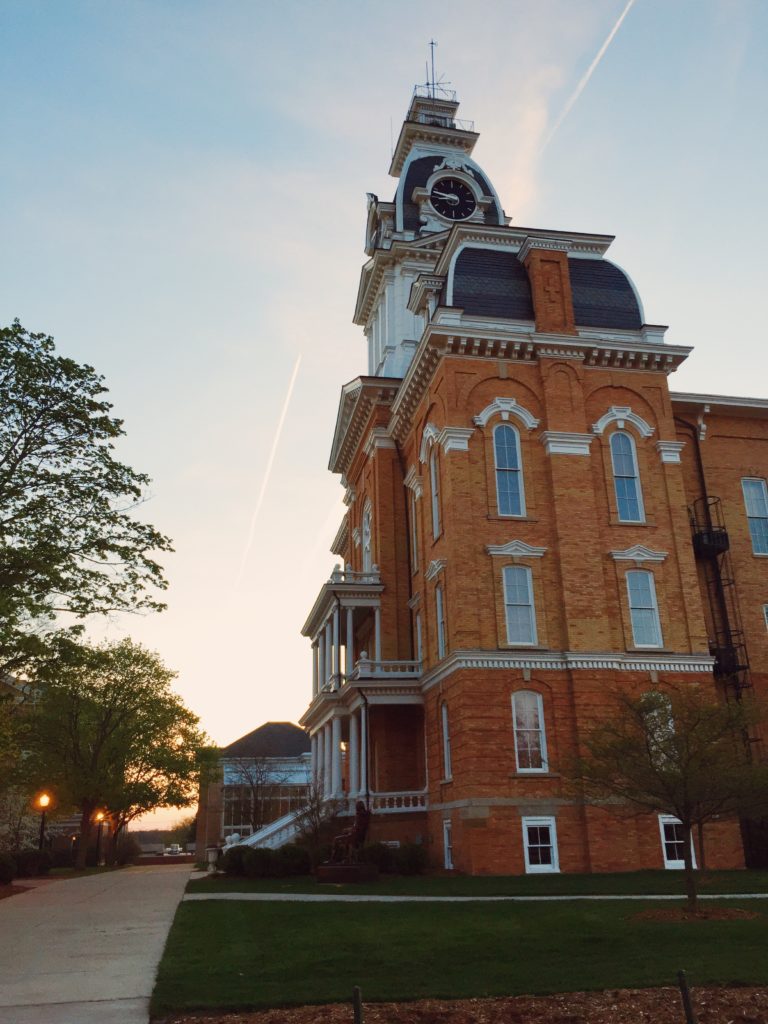
For COVID-19, college campuses are the perfect petri dish, said Francis Steiner, professor of biology at Hillsdale College. While Hillsdale College has 16 students in isolation as of Monday morning, other Michigan universities are adapting to the spread of the omicron variant in different ways.
“Anytime you put students inside some kind of a close living space, that’s pretty much the great equalizer, depending on whether you’re talking about a population that’s 40,000 students or 1,500 students,” Steiner said.
The colleges have adjusted legislation based upon their various needs, though a common denominator appears to be vaccine requirements and testing.
“Besides the absence of lockdowns, masking requirements are more lenient but are still required indoors,” said Shad Soldano, a public health graduate student at University of Michigan-Ann Arbor. “This year, the university did mandate the COVID-19 vaccine, including the mandated booster.”
Among their student body of nearly 50,000 people, there were only 596 active cases as of Jan. 1, according to the University of Michigan’s Campus Blueprint website. Due to similar numbers, other schools, such as Oakland University, Wayne State University, and Michigan State University, have announced that their first few weeks of the semester will be online.
“Being a student at the School of Public Health, you especially understand the impacts that the COVID-19 virus has on our healthcare system,” Soldano said. “If you don’t want to get sick from COVID-19, the booster does help, and there are arguments that being vaccinated lowers the chance of the virus mutating into something worse.”
University of Michigan-Dearborn has similar requirements to Ann Arbor.
“I feel that these requirements and mandates are justified for their purposes to achieve the university’s goals of providing in-person classes while keeping students safe,” engineering student Jeremiah Loewen said. “The mandates do inconvenience me, and it could be argued that their mandates infringe on my rights, but I made the conscious decision to go to this college.”
As an unvaccinated student, Loewen said he feels equally treated, though his college experience requires extra precautions.
“The process for requesting an exemption at first seemed like it wouldn’t be taken seriously and was stressful because of that,” Loewen said, “However, I wasn’t given any grief about my request and was granted the request reasonably soon after I submitted it. Currently, I only need to get tested weekly to replace the vaccine mandate.”
Soldano, however, had a different experience in Ann Arbor.
“I know somebody that is unvaccinated and still got COVID-19,” he said.“The unvaccinated are required to get tested weekly, but this individual decided to isolate for the week, therefore missing his weekly COVID-19 test.”
Soldano said the university placed a hold on his account due to his failure to comply with the weekly testing, inconveniencing the individual during class registration.
“He was sick and decided to stay home to prevent spreading COVID-19 to others, and he was unfairly treated due to his unvaccinated status,” Soldano said. “I believe the university should consider these circumstances into their COVID-19 response to best support all students, whether vaccinated or not.”
Soldano said he will not allow COVID-19 to lower his quality of life.
“At this point, COVID-19 is not going away any time soon, as we have to get used to living with the virus,” he said. “I don’t live in fear anymore, and I hope it stays that way.”

